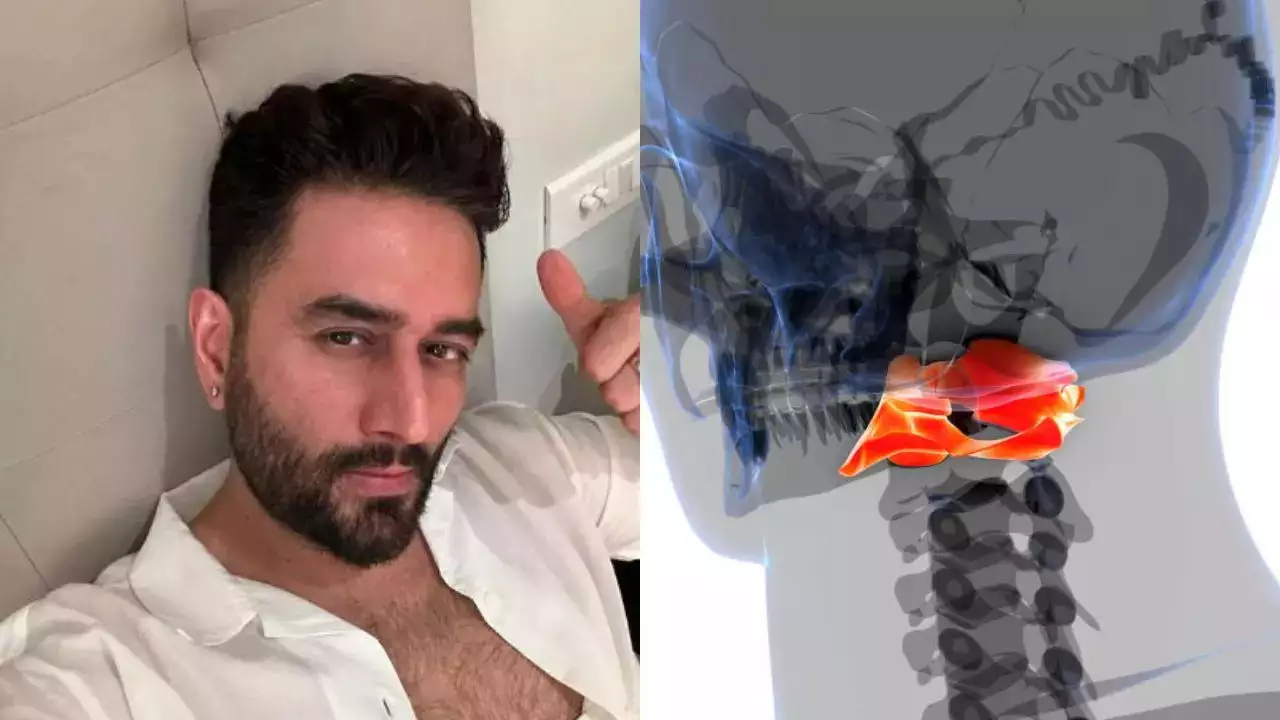
Shekhar said his journey after knowing about the vocal cord paralysis was full of despair until he made recovery with the help of his doctor
Music composer and singer Shekhar Ravjiani opened up about a life-altering health scare he faced two years ago - sharing that he was diagnosed with Left Vocal Cord Paresis which made him lose his voice.
In a note he penned on social media, Shekhar said his journey after knowing about the vocal cord paralysis – which does not let you control the muscles that move one or both vocal cords, was full of despair until he made recovery with the help of his doctor.
Those suffering from left cord paresis face immense issues with breathing, swallowing, and speaking.
“I Lost My Voice 2 Years Ago. I was destroyed, honestly...I was pessimistic. I thought I would never be able to sing again,” he wrote in a lengthy post on Instagram. “Since then, I have met a lot of people who lost their voices in COVID-19. There is a way, there is a solution,” he added.
What is left cord paresis?
According to experts, the condition involves one or both vocal cords not moving as they should. Your vocal cords – two bands of muscle inside your larynx located atop your windpipe, open when you breathe so air can pass through. They close when you swallow to prevent food and drink from slipping into your windpipe.
When you have vocal cord paralysis, nerve damage prevents the muscles inside your vocal cords from opening and closing properly which results in you having trouble speaking, swallowing, or even breathing. Experts say unilateral vocal cord paralysis – a type of this condition is common; however, it is rare for both vocal cords to become paralyzed.
Signs and symptoms of vocal cord paresis?
The signs and symptoms of this condition depend on the extent of the paralysis and the position of your vocal cords in relation to each other. A few of these include:
- A voice that sounds hoarse, weak, scratchy, or breathy
- Changes in your vocal pitch
- Changes in your vocal volume
- Breathlessness and difficulty in speaking a full sentence
- Noisy breathing and wheezing
- Trouble swallowing
- Inability to clear your throat even by coughing
- Choking when you try to swallow
While doctors say many people with vocal cord paralysis can still speak, it takes a lot of effort to even complete a sentence. You may notice changes in how your voice sounds as it becomes winded. If your paralysis is more severe, you may completely lose your voice.
What causes vocal cord paralysis?
There are many conditions that damage the nerves that control how your vocal cords move, including:
Autoimmune diseases
Many autoimmune conditions that interfere with how nerves communicate with muscles, like myasthenia gravis lead to vocal cord paralysis.
Infections
Infections like herpes, COVID-19, and Lyme disease – all of which cause inflammation and damage the nerves that control vocal cord movement
Injury
Trauma to your neck, head, and chest can lead to nerve damage
Neurological diseases
Conditions that involve nerve deterioration and damage, including a stroke can impact your nerves.
Poisonous substances
Inhaling or ingesting toxins including lead, mercury, and arsenic, can harm nerve tissue.
Tumours
Cancerous tumours can push on the nerves in your voice box, causing damage.
Can paralyzed vocal cords be repaired?
According to experts, many times, the vocal cords repair themselves. While it may take months for voice therapy, vocal cord injections or implants can help you get your voice stronger and allow people to hear you better when you talk. You may also feel that treatment improves your swallowing and breathing.
Get Latest News Live on Times Now along with Breaking News and Top Headlines from Health and around the world.
